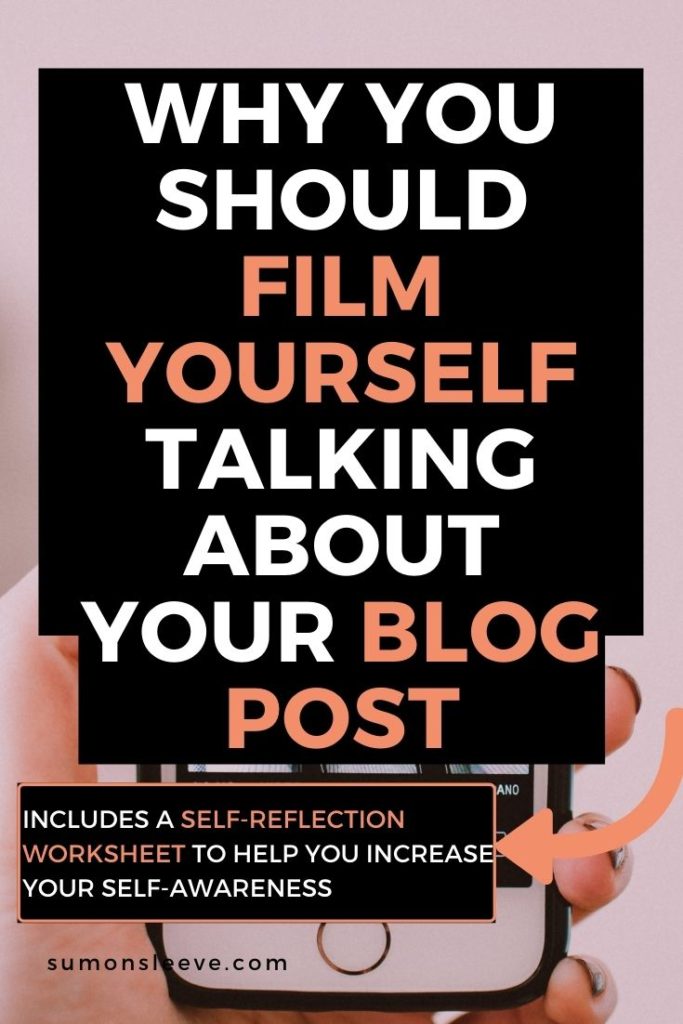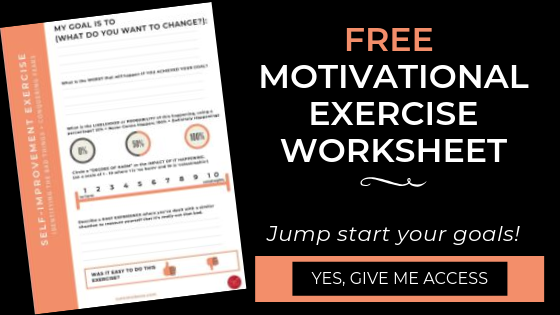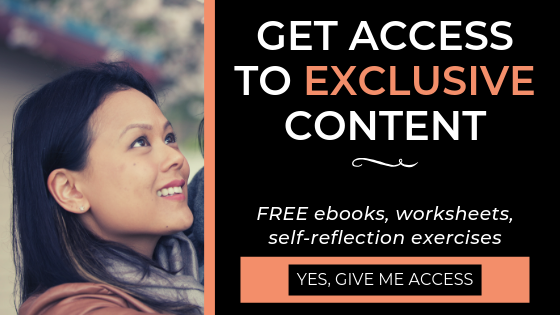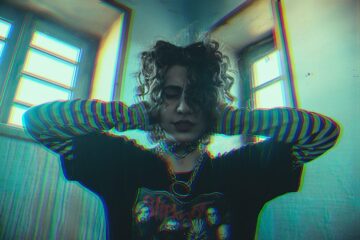After publishing over 200 videos, I realized it's not the number of views, likes, subscribers, or comments that matter; it's what I learned about myself during that process that could never be measured in numbers (even if you don't decide to publish it)
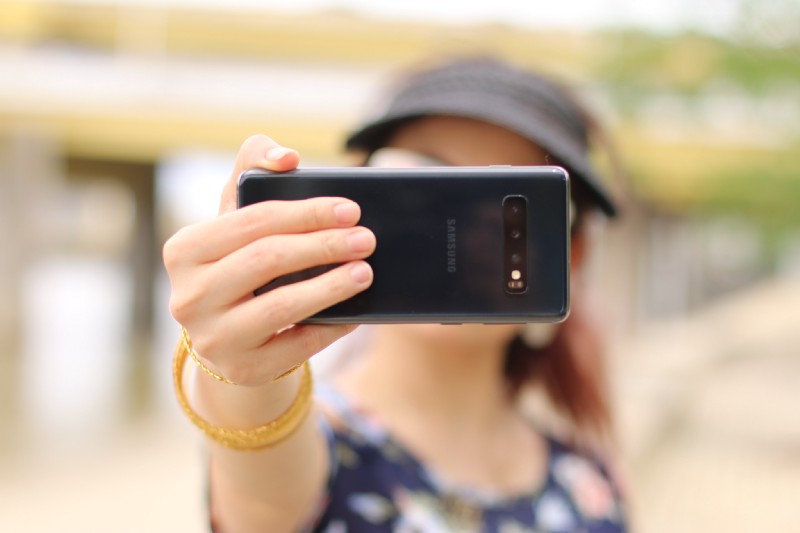
I’ve been a writer since I could remember but I only started blogging 3.5 years ago. Why?
Because I was scared. I was scared to put my writing out there without the academic label, the business structure, the multiple edits from other people and that final stamp of approval from a manager, a committee, a professor etc. I was afraid to own my writing and be on the hook whether it dive-bombed into the abyss or grew wings and soared with the eagles.
But after I became a mom, I realized, there are scarier things in this world than my fears of what others thought. My reasons to blog (preservation of my culture, family stories, life lessons to help others etc) outweighed my reasons not.
Then 2 years ago, I was listening to Gary Vaynerchuk’s podcast and he kept mentioning that people want their content delivered in multiple ways, not just through the written word. Gary’s voice echoed in my mind at night, reiterating,
“Don’t overthink shit.”
“People are crippled by perfection.”
I needed to start exploring audio and visual methods of creating content. So I set a goal to make a video. Just one video.
And that goal didn’t get achieved. I procrastinated. I set it aside. I made excuses for myself:
I’m busy. I don’t have time.
I don’t have make-up on.
My outfit sucks.
The lighting isn’t good enough.
I have “better” things to do.
Again, I was scared of the bad things:
What if they didn’t like my voice?
Called me ugly and fat?
Told me I don’t know what I’m talking about?
That I’m a loser or an idiot?
How likely was that to happen?
I don’t know. It’s possible given some of the negative comments I received on my writing thus far.
Those in the public eye are often scrutinized like a juicy naked blob of flesh being attacked by hungry mosquitoes.
What will be the damage?
Hurt ego, upset feelings, poor self-esteem and a lack of motivation to keep doing them.
So what?
I go back to my days of getting bullied, to the days of being told I couldn’t do this or that because I’m not good enough or it’s “not within my realm”, the mean comments I’ve seen already from my written work. I go back to the moment before I wrote my first blog post, reminding myself how far I’ve come already.
I remind myself of my history of being my own worst critic…the one who said the worst shit.
Those who are hard on others are hardest on themselves.
How bad can it really get?
Check out all my videos here, proof that I faced my fears and that I practice what I preach (well, most of the time)
After publishing over 200 videos, I realized it’s not the number of views, likes, subscribers, or comments that matter; it’s what I learned about myself during that process that could never be measured in numbers. Here are 4 things that I gained from filming myself talking about my articles:
1. Helped me overcome my insecurity of what others think
I’ve been self-conscious ever since I hit puberty and worrying about what others think of me is one of my biggest insecurities. But with each video that I recorded, edited and published, that fear got a bit smaller.
In the beginning, when I hit that publish button, the anxiety I felt would linger for hours after the video went live.
“How many people saw it?”
“What are they saying?”
“How many likes did I get?”
Then those hours turned into minutes and now, I schedule them without remember when they’ve gone live.
Then I started doing Instagram stories and videos without makeup, in my sweats, with my hair in a messy bun. And that fearlessness carried into my real life. I’d go out to the store and if I bumped into people I knew, I wasn’t thinking about what I was wearing and whether I had makeup on. I didn’t avoid them. I waved hello and greeted them warmly.
I didn’t care because I knew there were countless videos online that showed me unkempt, keeping it raw and real. I became more comfortable in my skin because I learned to embrace the imperfections of how I looked.
2. Increased my self-awareness of how I present myself
Have you ever wondered how you present yourself in person?
Whether it was for an interview, a work/school presentation or just going out to eat?
We can look in the mirror, pictures or daringly ask our friends and family. Filming yourself is one of the best ways to help you understand how you present yourself to others even if you don’t decide to hit publish.
Watching myself on the screen made me aware of my body language, the tone, pitch and rhythm of my voice. Editing my own videos and hearing myself repeat a sentence multiple times gave me an objective idea of how I present myself. I got to see every facial tick, hand gesture, shoulder roll and shift in body position and the gaps in the way I communicated became apparent.
I learned to get rid of “likes” and “ums” not just through video editing but how I spoke in front of and behind the camera. When I was recording, I was cognizant of those words and avoided saying them because I knew I would have to take longer to edit them out.
Because I write about personal growth, oftentimes, it’s about the struggles I’ve experienced in life. I could watch my eyes dart up and down whenever I spoke about something that made me uncomfortable. I could see myself smile and wiggle my jaw whenever I talked about something that made me happy. I could see how I presented myself would affect how someone perceives me. And honestly, it wasn’t so bad after editing about 10 videos; I was able to get over the cringe factor.
3. Helped me improve my memory
I’ve never taken a single acting class but I’ve watched countless movies and television shows. Actors have to memorize pages and pages of lines while delivering them with emotion in front of tons of people.
Filming myself allowed me to appreciate how much work it takes to be in front of the camera. It further cemented my limited acting abilities.
Even though I wrote the script myself, I still had to memorize what to say once the camera was on. I developed ways to remember what to say by chunking sentences together and grouping my trains of thoughts so that there would be fewer pauses between sections.
There would be moments where I would forget and had to stop filming. It was frustrating but over time, it became easier. Studies have shown that practicing information retrieval helps establish and strengthen brain connections, improving memory function.
Whether you decide to publish the video or not, it’s always helpful to improve how we remember things.
4. Helped improve my public speaking skills
In addition to improving my memory skills, I was able to work on my public speaking skills. Whenever I filmed, I made sure to look into the camera lens as much as possible so that the person watching felt like I was talking to them. I visualized speaking in front of multiple people so that I could present myself as relatable and engaging.
Studies have shown that people who imagine themselves performing a task actually do better when they do it in real life.
Side bonus: cleaning out my phone
I used my phone to film my videos and the more I created, the more storage was used. It forced me to delete apps that I didn’t need and go through photos that had already been saved onto the cloud. I got rid of some of my social media apps that were not just dragging my phone down but me mentally.
So Readers, have you ever filmed yourself? What did you learn in the process?
